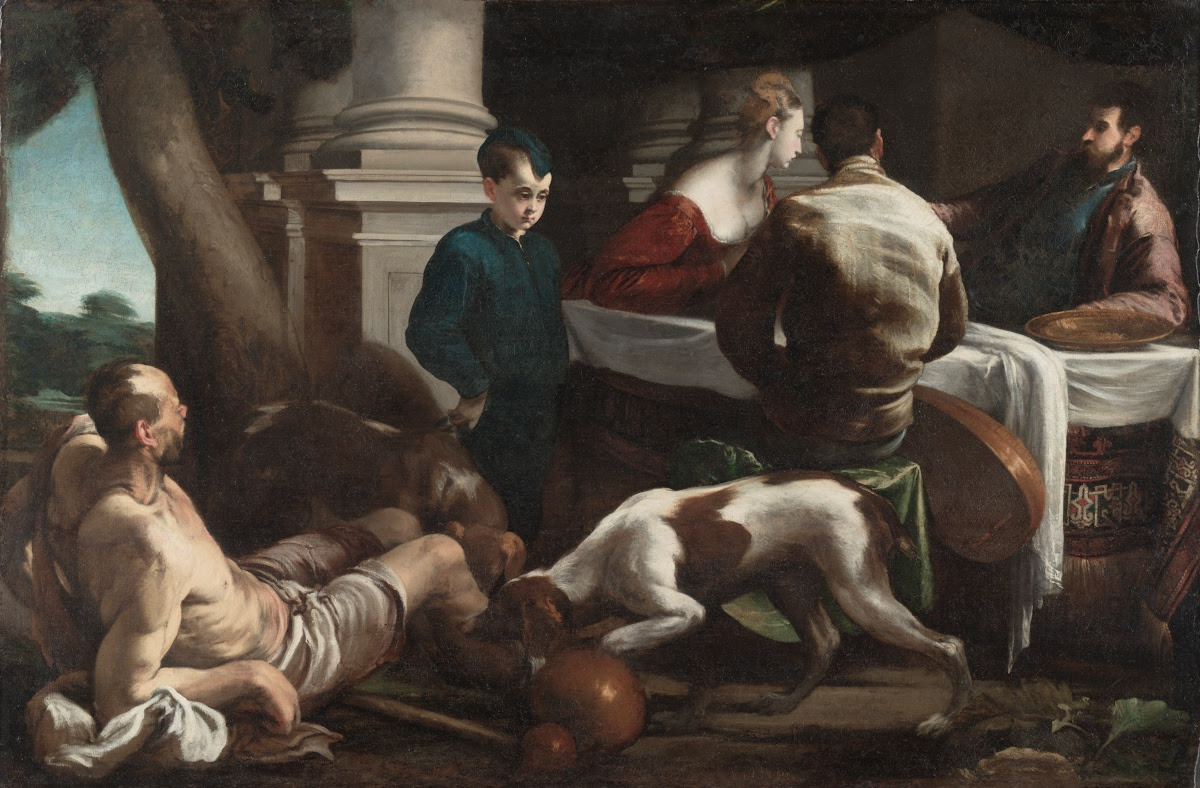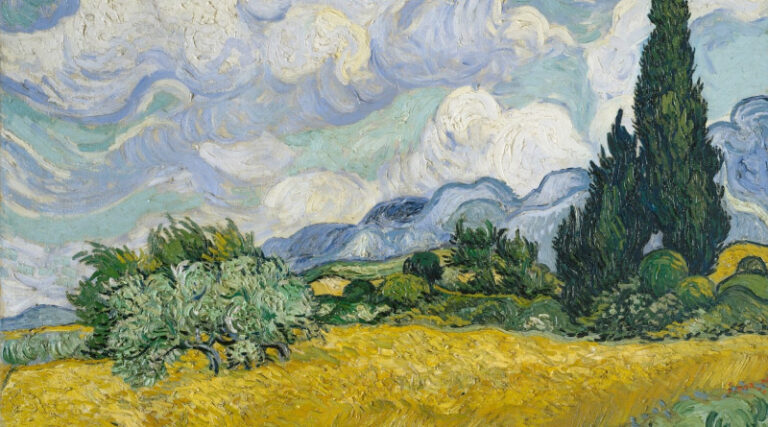2 Thessalonians 1:8-9: “dealing out retribution to those who do not know God and to those who do not obey the gospel of our Lord Jesus. These will pay the penalty of eternal destruction, away from the Lord’s presence and from His power’s glory.”
Summary:
The Parable of the Rich Man and Lazarus contrasts the eternal fates of a wealthy man who lived in luxury and a poor, suffering man named Lazarus. After death, Lazarus, a believer, is comforted beside Abraham, while the rich man experiences torment in Hades. Despite his pleas for relief and for Lazarus to warn his living brothers, Abraham explains that their disbelief will persist even if someone rises from the dead. This parable illustrates the consequences of ignoring God’s calls to righteousness and the futility of relying on transient earthly pleasures, similar to how many may disregard deeper spiritual truths in favor of the immediate gratification of financial success and material gain, as highlighted in the cultural phenomena like Joel Osteen’s bestseller, “Your Best Life Now.” Salvation, as the parable and accompanying scriptures suggest, is a sovereign work of God, accessible through faith, repentance, and the power of God’s word.
Parable of the Rich Man and Lazarus
Luke 16:19-31: “There was a rich man who was clothed in purple and fine linen and who feasted sumptuously every day. And at his gate was laid a poor man named Lazarus, covered with sores, who desired to be fed with what fell from the rich man’s table. Moreover, even the dogs came and licked his sores. The poor man died and was carried by the angels to Abraham’s side. The rich man also died and was buried, and in Hades, being in torment, he lifted up his eyes and saw Abraham far off and Lazarus at his side. And he called out, ‘Father Abraham, have mercy on me, and send Lazarus to dip the end of his finger in water and cool my tongue, for I am in anguish in this flame.’
But Abraham said, ‘Child, remember that you in your lifetime received your good things, and Lazarus in like manner bad things; but now he is comforted here, and you are in anguish. And besides all this, between us and you a great chasm has been fixed, in order that those who would pass from here to you may not be able, and none may cross from there to us.’ And he said, ‘Then I beg you, father, to send him to my father’s house—for I have five brothers—so that he may warn them, lest they also come into this place of torment.’ But Abraham said, ‘They have Moses and the Prophets; let them hear them.’ And he said, ‘No, father Abraham, but if someone goes to them from the dead, they will repent.’ He said to him, ‘If they do not hear Moses and the Prophets, neither will they be convinced if someone should rise from the dead.’”
Analysis
Of all the numerous Parables, the Parable of the Prodigal Son and the Parable of the Rich Man and Lazarus are arguably the most well-known. The Prodigal Son is much like the Parable of the Wedding Feast, demonstrating God’s heart’s desire to extend a redemption invitation to all men regardless of their sin. Conversely, the Parable of the Rich Man and Lazarus shows the consequences of rejecting that invitation. As such, it’s the other side of the equation—the result of refusal. Additionally, it addresses what proof, if any, may help change men’s minds to believe. Finally, it shows that judgment is sealed upon death.
With over 10 million copies sold and a New York Times Bestseller, Joel Osteen recently released his 20th anniversary edition of “Your Best Life Now.” But, think about it: if life on earth is your “best life now,” doesn’t that insinuate that life after your earthly presence may not be as good? And that’s precisely what transpired with the Rich Man in this Parable. Father Abraham is quoted as saying, “Remember that you in your lifetime received your good things.” Indeed, that was true for the Rich Man “was clothed in purple and fine linen and … feasted sumptuously every day.” However, now, the Rich Man was “in anguish” and in “this place of torment.” To be clear, wealth and success in this life have nothing to do with redemption in the next life.
James 4:14 claims, “You are a mist that appears for a little time and then vanishes.” Meanwhile, Matthew 45:26 shows that “…these will go away into eternal punishment, but the righteous into eternal life.” Somehow, this contrast between a mist that appears and vanishes versus everlasting punishment or endless life seems to be commonly disregarded.
Why wouldn’t it? With bestselling advice like “Your Best Life Now,” who would be concerned about an afterlife? Indeed, our immediate gratification is much more important—right?
But now, faced with the consequences, the Rich Man pleads, at least then, “…send him [Lazarus] to my father’s house—for I have five brothers—so that he may warn them, lest they also come into this place of torment.”
That should work. Since the Rich Man ignored God’s invitation during his lifetime, maybe Lazarus’ appearance warning his brothers of the dire consequences might change their minds. But Abraham responds wisely, “If they do not hear Moses and the Prophets, neither will they be convinced if someone should rise from the dead.” But what is Moses and the Prophets? Simply stated, it’s the Bible. Remember Paul’s claim in Romans 10:17, “So faith [salvation] comes from hearing, and hearing through the word of Christ.”
Abraham adds an interesting caveat, “…neither will they be convinced if someone should rise from the dead.” And, someone did rise from the dead—Christ Jesus. Was the effect universal acceptance of God’s invitation? No! The chief priests and elders were skeptical and sought to undermine the resurrection account. They bribed the soldiers who had guarded the tomb to spread a false story. Matthew 28:12-15 confirms, “And when they had assembled with the elders and taken counsel, they gave a sufficient sum of money to the soldiers and said, ‘Tell people, “His disciples came by night and stole him away while we were asleep.” And if this comes to the governor’s ears, we will satisfy him and keep you out of trouble.’ So they took the money and did as they were directed. And this story has been spread among the Jews to this day.”
Note, “to this day,” the result of a warning or even Christ’s rise from the dead will be of no value.
Note also the comment, “…a great chasm has been fixed, in order that those who would pass from here to you may not be able, and none may cross from there to us.” We’re so conditioned to second changes, to no bail arrests, to District Attorneys who fail to even file charges, but Hebrews 9:27 sets the record straight, “And just as it is appointed for man to die once, and after that comes judgment.” Unfortunately, then, it’s too late; there are no second chances.
It is essential to understand that salvation is a sovereign work of God. John 6:4 states, “No one can come to me unless the Father who sent me draws him. And I will raise him up on the last day.” However, the rejection of God’s salvation invitation and the consequence of eternal damnation is on man as Romans 1:18-20 shows, “For the wrath of God is revealed from heaven against all ungodliness and unrighteousness of men, who by their unrighteousness suppress the truth. For what can be known about God is plain to them, because God has shown it to them. For his invisible attributes, namely, his eternal power and divine nature, have been clearly perceived, ever since the creation of the world, in the things that have been made. So they are without excuse.”
1 Corinthians 15:32 talks of the futility of your best life now when Paul claims, “If I fought wild beasts in Ephesus with no more than human hopes, what have I gained? If the dead are not raised, ‘Let us eat and drink, for tomorrow we die.’” Christ also makes this clear in Matthew 16:26 when He states, “For what will it profit a man if he gains the whole world and forfeits his soul?”
You’re free to disregard life’s spiritual considerations—but there will be consequences.
Eat, drink, and be merry. For this could be your best life now.









